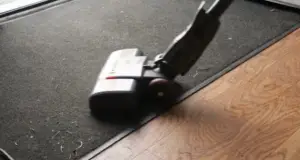Nature Abhors A Vacuum
What Does Nature Abhors A Vacuum Mean? Lets explore it. Aristotle began the expression “nature abhors a vacuum,” however a group of Tulane University analysts says their most recent review demonstrates there are exemptions for the standard.
The expression communicates the possibility that unfilled spaces conflict with the laws of nature and physical science and that each space should be loaded up with something.
In their review, distributed in Nature Chemistry, the analysts showed that it is conceivable that water might decline to fill a class of bowl-moulded atoms called cavitands — relying upon the arrangement of sleek gatherings around the edge of the particle’s bowl when put in the watery arrangement.
How Do Vacuums “Suck”
In physical science “vacuum” signifies “genuine void space,” a climate with nothing in it and hence low pneumatic force. A vacuum cleaner has low pneumatic force causing the higher strain air around it to get “sucked” in, yet this doesn’t mean void space has an inborn “sucking” quality. All things being equal, it involves getting away from speed. The gas, for this situation “air,” in the higher thickness region is “getting away” to the low-thickness vacuum. The outcome is non-void space. In other words, void space would not like to be vacant, nature abhors a vacuum.
Why Does Air Not Get Sucked Into Space Nature Abhors A Vacuum
The explanation space doesn’t suck up our air, regardless of its generally lower pneumatic stress, is a direct result of gravity (for example general relativity). Planets with lower gravity do not have a climate (as the incomplete vacuum of space “sucks” the environment off into space).
Search For The Perfect Nature Abhors A Vacuum Mean
Aristotle’s thought was that there was no obvious void space (that unfilled space was unnatural and conflicted with the laws of physical science). All things being equal, Aristotle thought, there was a medium (what we may call aether) that clarified why things once put into high gear stop.
The greater part of Aristotle’s hypothesis would later be check better. It was by the speculations of general relativity (bent spacetime as gravity) and Newton’s laws of motion.
Incredible personalities challenged or discussed this idea including Galileo Galilei, Blaise Pascal, Thomas Hobbes, Robert Boyle, Sir Isaac Newton, and Gottfried Leibniz, for the most part with regards to seventeenth-century liquid mechanics. It worked out that Aristotle’s knowledge was directly about nature hating void space and he wasn’t excessively far off on his laws of movement either, however that is another story.
Hypothetically, if we somehow happened to eliminate the basic particles of the standard model from the universe, we would have just an ideal vacuum and level spacetime left (instead of loads of shape and quantum field variances).
Along these lines, with all particles eliminated, the universe is just a monster level vacuum. This may make one think that Aristotle was appallingly off-base, however, the thing is, we still can’t seem to demonstrate that an ideal stable vacuum (“nothing”) can exist in nature and truth is that we realize that the whole universe contains with “somethings”.
Would We Be Able To Create A Perfect QED Vacuum
Like outright zero in temperature, an ideal vacuum is achievable just on a fundamental level. It is a philosophical glorification; it very well is nearer, yet never really care it out.
In a lab, we can make a close ideal vacuum for a small amount of a moment. Afterwards, it quickly falls into quantum changes bringing about everything except “genuine void space.”
What Pascal thought he discovered when he contemplated the “Torricellian void” isn’t “a genuine vacuum,” it is simply vacuum-like.
In this manner, albeit a couple of the main actual constants known to man are available with vacuums.
Quantum electrodynamics (QED) is a hypothesis. The nuts and bolts of the standard model and the mother of all hypotheses QED. QED predicts that no volume of the room can be void. (An ideal vacuum with a vaporous tension of outright zero).
What Happens If Your Body Has Come Up With The Vacuum Of Space
In space you don’t detonate, you bubble (peculiar right?). Likewise in space nobody can hear you shout (since sound is a mechanical wave). Space is marvellous, yet even “the vacuum of room” is certainly not ideal.
Conclusion
Despite the way that space is a goliath vacuum, nature abhors a vacuum. There is no obvious void space (it contain with quantum fields). Yet a decent piece of it is generally void space and fractional vacuums.
After reading this article, I hope you have understood what does nature abhors a vacuum means.




